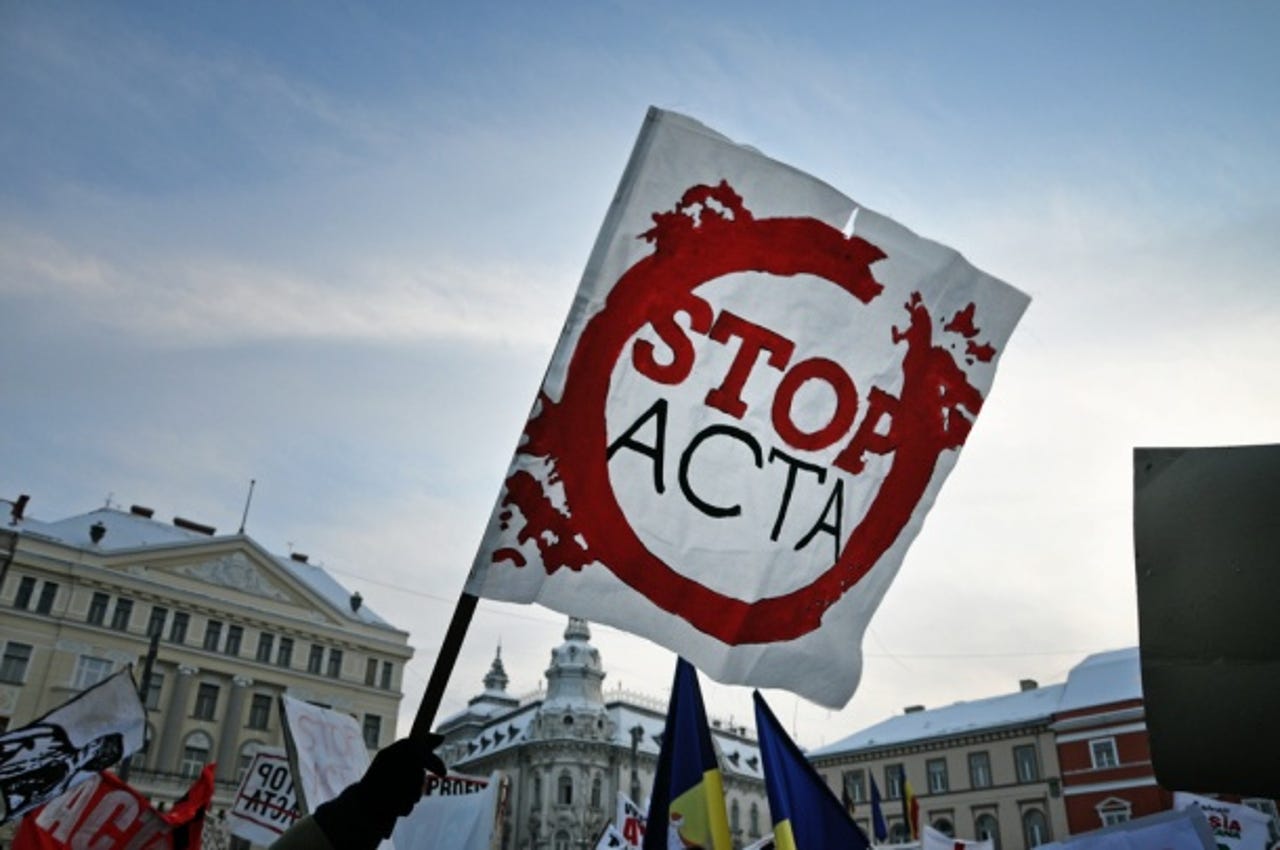ACTA gets final stake through heart as EC drops court referral

The Anti-Counterfeiting Trade Agreement can no longer come back from the grave in Europe, after the European Commission dropped its bid to have the copyright treaty's legality confirmed by the union's top court.

Parliamentarians roundly rejected ACTA back in July. They had many reasons for doing so, primarily the large physical demonstrations taking place across the continent against it. Many criticised the behind-closed-doors nature of the treaty's formulation, and complained when leaked drafts revealed wording that could, among other things, criminalise bloggers who put copyrighted images into posts.
However, before the European Parliament had its say, the Trade Commission referred ACTA to the European Court of Justice (ECJ), so the court could rule on its legality. This was ostensibly to clear the air, but critics called out the Commission for trying to stall a vote it knew it would lose.
After the parliamentary rejection, trade commissioner Karel De Gucht maintained that the ECJ examination should still go ahead. He even went so far as to say that he would consider reintroducing ACTA if it was given the all-clear.
That is now not going to happen, as the Commission has dropped its referral.
"I welcome this news from the Commission today," Socialists & Democrats (S&D) MEP David Martin said in a statement on Wednesday. "The EU cannot be party to an agreement without European Parliament ratification. MEPs overwhelmingly rejected ACTA in July and I am pleased that the Commission has acknowledged this is the end of the road for ACTA in the EU thanks to the Parliament."
Outside the EU, none of the ACTA signatories have ratified it, with the sole exception of Japan. The US, which was alongside Japan the driving force for the treaty in the first place, is yet to take that step — although, with Barack Obama having secured his second term, this may yet happen.
The Australian government seems set on ratification. At least six of the signatories need to ratify ACTA if it is to come into force anywhere. Sadly for those who favour the agreement, the withdrawal of the EU and its 27 member states means there are only eight signatories left.
ZDNet has asked the Commission for comment, but had no reply as yet.